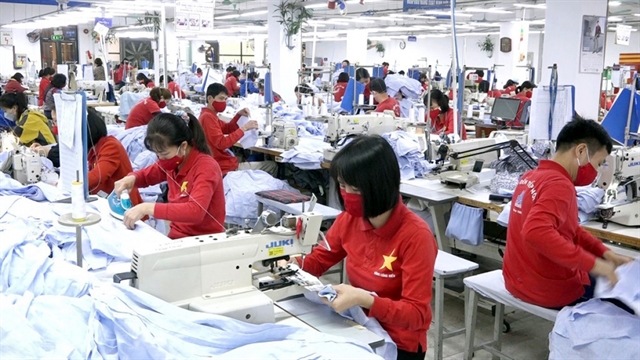Vietnam’s Role in Sustainable Garment Production
Vietnam has rapidly risen to become one of the top garment exporters in the world, supplying apparel to major global brands like Nike, Adidas, Uniqlo, H&M, and Zara. But in recent years, the global fashion industry has been shifting from fast fashion to sustainable and ethical manufacturing—and Vietnam is responding to the call.
With a strong manufacturing base, government support, and increasing adoption of green practices, Vietnam is positioning itself as a leader in sustainable garment production. In this article, we explore how Vietnam is contributing to the future of ethical fashion, the ongoing reforms, and the opportunities for global brands to source responsibly.
👕 Vietnam’s Garment Industry at a Glance
The garment and textile industry is Vietnam’s second-largest export sector, generating over US$44 billion in exports in 2023 and employing around 2.5 million workers. The country is the third-largest garment exporter globally, behind China and the EU.
Key strengths include:
-
Competitive labor costs
-
Skilled workforce
-
Established supply chains
-
Free Trade Agreements (FTAs), including the CPTPP and EVFTA, giving Vietnam preferential access to major markets
🔗 Read more: Vietnam’s Textile and Garment Industry Overview Vietnam-Agent.com
🌱 Sustainability in Focus: Why It Matters
As global consumers and brands push for more transparency and environmental responsibility, sustainability has become a competitive advantage.
Challenges faced by the global garment industry include:
-
High water and chemical usage in dyeing and finishing
-
Labor exploitation concerns
-
Carbon emissions from production and logistics
-
Textile waste and landfill overflows
Vietnam’s garment sector is embracing eco-friendly practices to stay relevant and attract ESG-conscious buyers.
♻️ Key Trends in Vietnam’s Sustainable Garment Sector
1. Eco-Friendly Materials
Manufacturers in Vietnam are increasingly using:
-
Organic cotton
-
Recycled polyester (rPET) from plastic bottles
-
TENCEL™ and bamboo fabric
-
Dyes from natural or non-toxic sources
Companies like Thanh Cong Textile and Phong Phu Corporation are investing in R&D to develop sustainable textile alternatives.
🔗 Explore: How Vietnam Is Promoting Green Textiles
2. Energy and Water Efficiency
To reduce environmental impact, factories are:
-
Installing solar panels to power operations
-
Upgrading to low-water dyeing machines
-
Using rainwater harvesting systems
-
Recycling wastewater using zero-liquid discharge systems
Several industrial zones, like the Dong Nai Garment Zone, now mandate energy-efficient infrastructure for new projects.
🔗 Learn more: Sustainable Manufacturing Zones in Vietnam Vietnam-Agent.com
3. Certifications for Sustainability and Compliance
To meet global standards, many Vietnamese manufacturers are now certified with:
-
OEKO-TEX®
-
Global Organic Textile Standard (GOTS)
-
Higg Index (SAC)
-
WRAP (Worldwide Responsible Accredited Production)
-
Fair Trade labels
These certifications help attract buyers from the EU, US, and Japan looking for ESG-compliant suppliers.

4. Digital Tools for Supply Chain Transparency
Brands are demanding traceability to ensure ethical sourcing. As a result, Vietnamese garment exporters are using blockchain-based platforms, QR code labeling, and supply chain mapping software to:
-
Track material origins
-
Monitor production emissions
-
Certify working conditions
This aligns with global transparency movements and regulatory changes like the EU’s Corporate Sustainability Due Diligence Directive (CSDDD).
🧵 Role of Global Brands and Local Partnerships
Major international retailers are now sourcing from green-certified factories in Vietnam. Companies like:
-
Adidas: Has multiple LEED-certified partner factories
-
Uniqlo: Invested in Vietnamese producers that reduce CO2 emissions
-
H&M: Partnered with local suppliers for sustainable production lines
These collaborations have spurred innovation in waste reduction, automation, and ethical labor practices.
🔗 Case Study: How H&M Is Partnering for Circular Fashion in Vietnam
📍 Government Policies Supporting Sustainable Garments
The Vietnamese government is backing this transition through several initiatives:
-
National Green Growth Strategy 2021–2030, targeting a 30% cut in emissions from the textile sector
-
Tax incentives for green-certified production
-
Low-interest loans for sustainability upgrades
-
Partnerships with organizations like UNDP, IFC, and USAID for industry training programs
The Ministry of Industry and Trade is also encouraging the development of green industrial parks and sustainable export clusters.
🌍 Investment and Sourcing Opportunities
Vietnam’s pivot to sustainability presents lucrative avenues for:
| Sector | Opportunity |
|---|---|
| Textile Manufacturing | Green tech, dyeing innovations, solar systems |
| Waste Management | Textile recycling, waste-to-energy plants |
| Agri-Tech | Organic fiber farming (e.g., cotton, hemp) |
| E-commerce | Sustainable fashion brands with Vietnam sourcing |
| Fintech | Supply chain ESG monitoring tools |
🔗 Need help sourcing sustainable garment partners? Work with a verified agent on Vietnam-Agent.com to access compliant, ethical factories.
✅ Conclusion
Vietnam is redefining its role in the global fashion industry—not just as a low-cost manufacturer but as a leader in sustainable garment production. With strong government backing, private sector innovation, and growing global demand for ethical sourcing, Vietnam is on track to become a model for green textiles in Asia Vietnam-Agent.com.
For fashion brands, investors, and sustainable supply chain managers, now is the time to explore Vietnam’s evolving garment industry. Whether you’re sourcing eco-textiles or developing a new ethical line, Vietnam offers a responsible and scalable solution for the future of fashion.
